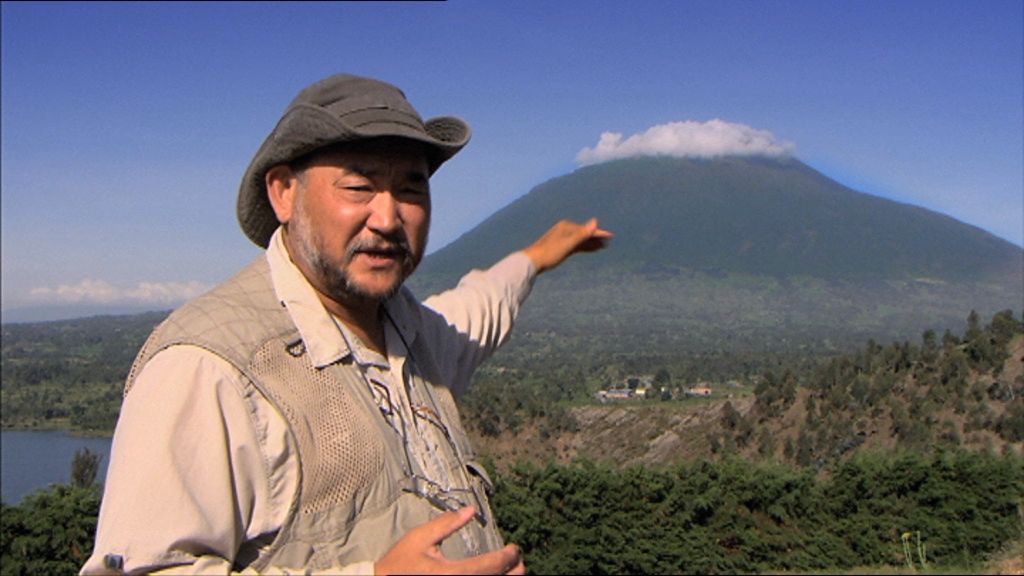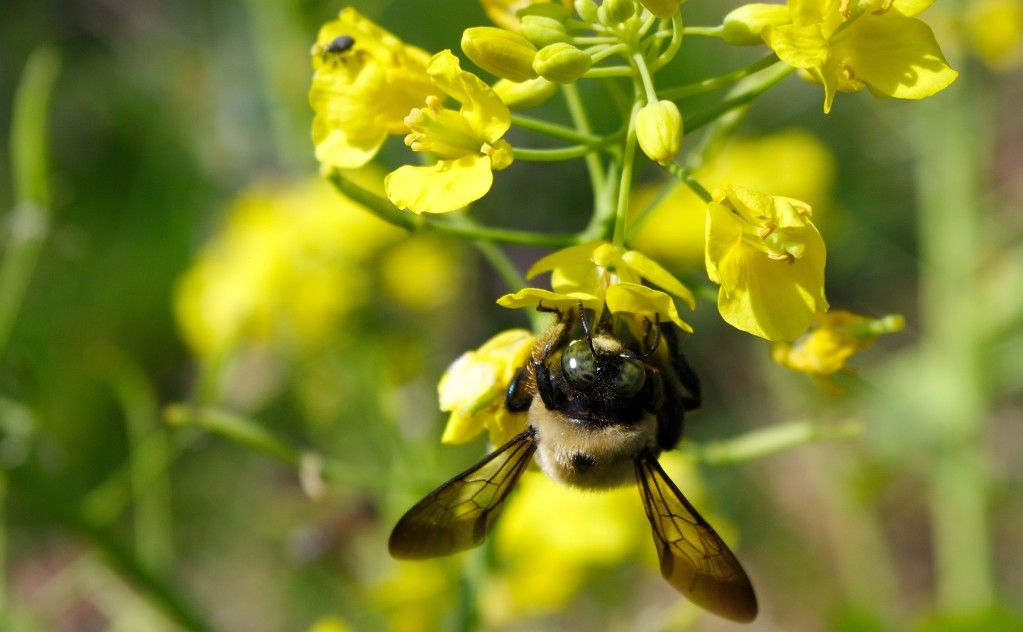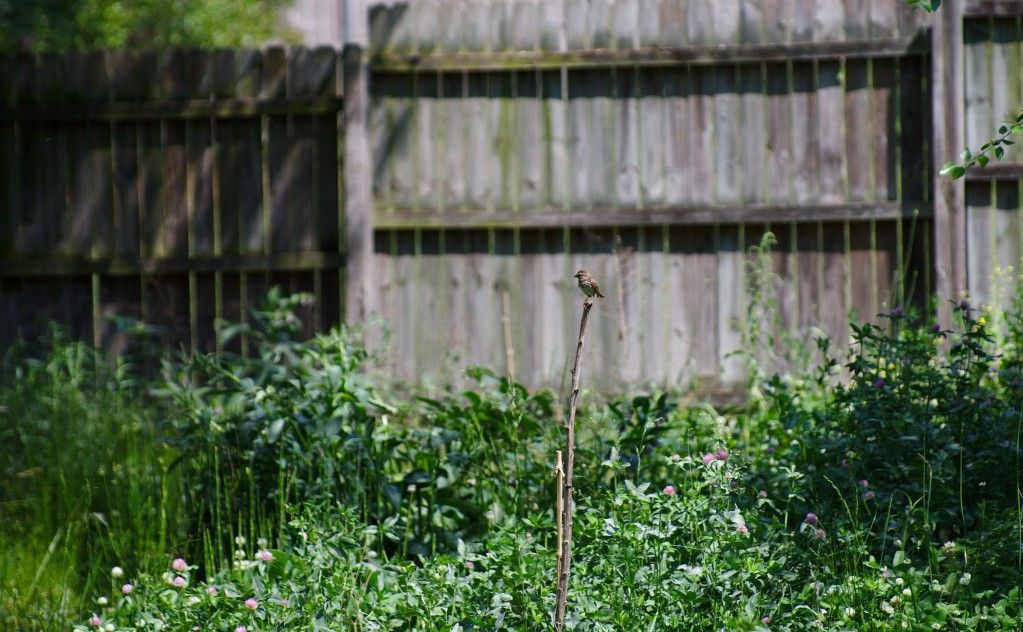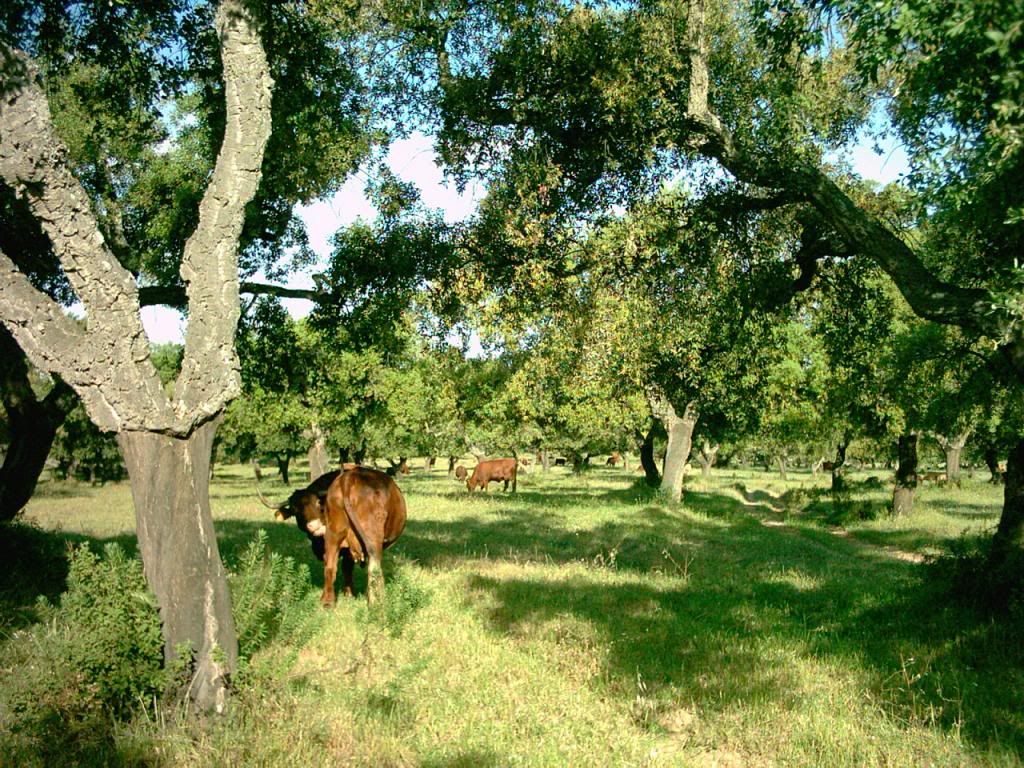With increasing frequency, the global scientific and development community is extolling the "win win win" benefits of shifting human relationships with the planet towards agroecology. While now two years old, this report from the "UN Special Rapporteur on the right to food" had this to say about agroecology:1
“To feed 9 billion people in 2050, we urgently need to adopt the most efficient farming techniques available,” says Olivier De Schutter, the UN Special Rapporteur on the right to food and author of the report, entitled “Agro-ecology and the right to food.”
“Today’s scientific evidence demonstrates that agroecological methods outperform the use of chemical fertilizers in boosting food production where the hungry live – especially in unfavourable environments,” he added.
[...]
“However, despite its impressive potential in realizing the right to food for all, agroecology is still insufficiently backed by ambitious public policies and consequently hardly goes beyond the experimental stage,” he points out. [emphasis added]
Even with all of the recent attention agroecology has been receiving, reporters of all stripes have been routinely ignoring developments in agroecology. I believe that the lack of coverage by those on the forefront of environmental reporting has much to do with the public's unfamiliarity with these issues. If environmentalists do not write about agroecology, what makes anyone expect that the corporate media will?
Two weeks ago, I challenged myself to write on a weekly basis to bring the hopeful message of agroecology to the Daily Kos community. Today marks the third such installation and will briefly look at the multitude of challenges that adopting agroecologcal methods has the possibility to reduce, eliminate, or even reverse. After reading, I believe that it will become all too clear why the corporate media cannot be trusted to bring this message forward to the public.
1. "UN expert makes case for ecological farming practices to boost food production, " UN News Centre, 8 March 2011
As always, I encourage readers to spend time with the material provided and think beyond what is commonly accepted.
Last Time Here
 Green Gold: Setting aside higher elevations as preserves to maintain ecosystem services, Rwanda. Photo Credit: VPRO Tegenlicht2
Green Gold: Setting aside higher elevations as preserves to maintain ecosystem services, Rwanda. Photo Credit: VPRO Tegenlicht2
My last diary shared an article by Dr. Mae-Wan Ho of I-SIS which examined both a new UN Trade and Environment Review report entitled "Wake up Before it is Too Late: Make Agriculture Truly Sustainable Now for Food Security in a Changing Climate" as well as reviewing a multitude of studies and practices which are changing the way humans relate to the natural world.3;4
I also wrote a bit about how writing articles is akin to causing a ecological disturbance:
It is my opinion that to by choosing to disturb the thought processes and emotions of our readers through despair and finger-pointing alone is a recipe for disaster. This type of reporting leaves open an emotional and cognitive niche in the reader that is easily filled by pessimism and cynicism. After years of being disturbed by this kind of messaging, it comes with little surprise that readers have a hard time rooting out this gloomy outlook on the future.
Not only is this a recipe for disaster, but as the reader base becomes ever more enraptured by constant negativity, the ability to challenge long-held beliefs about humanity's relationship to the earth is greatly diminished. Creating a disturbance without offering a way out that everyone can participate in (in one way or the other) is counter productive.
I am hoping to begin writing other diaries about how people can take action on a small scale, but in the mean time it is possible to see the diaries under Additional Resources that deal with "Ecological Gardening."
These weekly reports on agroecology will continue because, as I have said before, it is unconscionable that these developments continue to be glossed over at best and ignored at worst by those championing human action to reverse anthropogenic climate change.
I also want to thank everyone who read and shared my diary last week. I am sorry that I have not responded to all the comments like I usually do. I started a full time internship last week and was, as one might imagine, quite busy. I hope not to repeat that mistake with this diary.
2. Back in April I wrote a diary on the documentary "Green Gold." Green Gold examines the relationship between human activity and environmental destruction, coming to the conclusion that because we do not place any monetary value on functioning ecosystems, our extractive economic systems will always seek to destroy them. The documentary features large scale projects where ecosystems are being repaired with astonishing results.
3. Dr. Mae-Wan Ho, Paradigm Shift Urgently Needed in Agriculture, reposted on Permaculture News. I-SIS has, and continues to be a voice for "social responsibility and sustainable approaches in science." See About I-SIS for more information regarding this organization.
4. The UN Trade and Environment Report is still unavailable, but this is where (AFAIK) it should be posted when the "embargo" is lifted. [UPDATE: Now available, direct PDF link is here.]
Is there another field which not only just offers, but is already providing so much hope?
 March 13, 2012, Bumblebee visiting mustard during very early spring in our garden. A winter cover crop- filling niches in both time and space- allows for the provision of crucial energy stores to our ecosystem partners in what otherwise would be a suburban toxic food desert (toxic due to the systemic pesticides unwitting gardeners are using to poison indiscriminately).
March 13, 2012, Bumblebee visiting mustard during very early spring in our garden. A winter cover crop- filling niches in both time and space- allows for the provision of crucial energy stores to our ecosystem partners in what otherwise would be a suburban toxic food desert (toxic due to the systemic pesticides unwitting gardeners are using to poison indiscriminately).
I have a very hard time imagining that there is, simply because agriculture (expanded to include the production of food, fuels, fiber, fodder, medicines, building material, from living organisms) is the "one" sector which has the greatest effect on how human beings relate to earth. Therefore, the adoption of ecological knowledge by anyone with a relationship to land is bound to have the greatest impact on local and global ecosystems.
Almost every negative impact that humans inflict upon the environment and each other when engaging in agriculture (see above definition) can be halted and reversed when we switch to agroecological techniques and principles.
A short list of benefits of agroecology:
1. Rapid carbon sequestration
2. Improved and repaired hydrological cycles
3. Preserving and promoting biodiversity
4. Reduction and elimination of "waste" through a reversal of the human thought pattern which describes the products of ecosystem functions as "waste"
5. Reduction and elimination of synthetic biocides and fertilizers
6. Improved soil fertility and nutrient cycling
7. Resultant increase in food security and real wealth
8. The establishment of base economy which respects ecosystem services which can then provide sustainable inputs for industry
9. Improved livelihoods
10. Reduction of gender discrimination and inequality through the empowerment of individuals which arises from increased abundance
Does all of this sound too good to be true? Does the diarist really expect that all of these things (and more) are possible through changing our relationship with the planet?
Yes. I do. Not only do I, but it is becoming increasingly obvious to those taking a holistic view of the challenges facing humanity that one of the root causes of all of them is our broken relationship with the planet. "Those" includes farmers, scientists, activists, development agencies, and national governments all around the world.
The most beautiful thing about agroecology is that it is a knowledge based approach to land management. Many of the techniques can be implemented with little to no cost, while reaping immediate rewards. And these immediate rewards only compound with time: a well designed agroecosystem can take upwards of a century to fully mature and manifest itself.
Now, you may be wondering: where is all of the evidence for the listed benefits above, or even more importantly, why have I not heard about this before if what the diarist says is true?
"Private companies will not invest time and money in practices that cannot be rewarded by patents and which don’t open markets for chemical products or improved seeds,” he adds."5
 2 May 2012. Common House sparrow utilizing an old sunflower stalk as an observation perch amid a polycultural cover crop: building soil for free with open pollinated crops while enlisting the services of an omnivorous bird to help with insect predation.
2 May 2012. Common House sparrow utilizing an old sunflower stalk as an observation perch amid a polycultural cover crop: building soil for free with open pollinated crops while enlisting the services of an omnivorous bird to help with insect predation.
This should not come as a surprise to anyone who actively visits Daily Kos or any number of independent sources of information. Why would private companies- the Cargills and Monsantos- invest in a field of research that, at its core, sets practitioners up to become independent and confident through the dissemination of information?
Most of the techniques and practices which fall under agroecology are the result of the direct observation of natural phenomena. How does one patent these revelations? How does one, once the seed of observation has been sown, compel a farmer to buy products at outrageous price points that- if they are even necessary- could be produced for free or limited cost on one's own?
It is actually quite simple: it cannot be done. The models and practices are beyond the scope of ownership by any individual or any collection thereof. Corporations and their lobbyists are not going to be pitching agroecological research ideas to any body of government or university. On the contrary, they will continue to support research into unnecessary and expensive "fixes" for problems that are created by the cultural practices that support their businesses.
The furthest thing from their minds is to break the cycle of dependence that traps farmers in industrialized agriculture.
This is why you will not see extended programs on agroecology and its many benefits in mainstream reporting.
One would think, however, that the promise of agroecology- to reverse the damage done by humanity on earth's ecosystems and in the process reduce or eliminate many of the 21st century's most pressing woes- would be hailed on a constant basis by the alternative press.6
5. See ref. #1 above for link.
6. Of course, we cannot regenerate with what is irretrievably lost- that is, extinct species. I wrote about this briefly in the same diary about Green Gold in a section on "Shifting Baselines."
"In an integrated system, crops and livestock interact to create a synergy, with recycling allowing the maximum use of available resources."7
 Bulls in a Dehesa system, Huelva Spain. Photo Credit Curiosidad.
Bulls in a Dehesa system, Huelva Spain. Photo Credit Curiosidad.
As mentioned in the first of these diaries, I feel that it is important to make certain that certain myths regarding livestock production are countered. Chief of these is the implication that livestock (of all stripes) are inherently detrimental to their immediate environment and the climate at large. While this is certainly true of industrialized agriculture and poor management in non-industrialized economies, it is not universally true.
For instance, a Dehesa system (pictured above) is an open savanna agroecosystem that is found on the Iberian peninsula. Trees of many species, but particularly oaks, are utilized for many products such as cork, lumber, and their acorns. Beneath this open canopy, cattle and pigs are traditionally grazed. These systems are extremely productive and are an excellent example of agroecological principles at work in so-called "marginal" lands. It is also possible that their production could be increased through more research and development: funds that will not be coming from governments beholden to industrial agriculture conglomerates.
Now, this is not to say that we should not be challenging a food culture which depicts a meat-centric diet as desirable. Reducing one's consumption of meat, especially from industrial sources, is an important step in taking responsibility for our actions. However, to say that livestock do not have a role to play in agriculture is to ignore the evidence from this developing field.
I encourage people to break from tradition and begin to question the commonly held belief that livestock are a detriment to the world. Upon closer inspection, it should become readily apparent that it is human decision making and actions which are causing the world's problems and that shouldering the blame upon livestock is nothing more than scapegoating.
If we can overcome decades of conditioning regarding agriculture and livestock, perhaps a movement to press our governments and ourselves to support an agroecological revolution will be launched. Unless we challenge these preconceived notions, the current paradigm will not be overthrown.
7. Antonio Rota and Silvia Sperandini, "Integrated crop-livestock farming systems," UN's International Fund for Agricultural Development (IFAD) p. 3
Additional Resources
Large Scale Damaged Ecosystem Regeneration [Diary]:
Excellent, must see documentary: John Liu's Green Gold- extended version of "Hope in a Changing Climate" that was presented at the recent Rio summit.
Another good article by John D. Liu. Finding Sustainability in Ecosystem Restoration.
Holistic Management [Diaries: First, Second, Third, Fourth]:
The Savory Institute.
The Africa Centre For Holistic Management.
Holistic Management International.
Seth Itzkan has put together a very good reference list for Holistic Management, here.
Permaculture:
The Permaculture Research Institute is excellent (Updated: formerly PRI Australia). With almost daily updates from the world of permaculture (an ethical design system that utilizes agroecology [diary]), this site is on my "must check list" daily. Good news to be found here.
There are some excellent video presentations from 2011's International Permaculture Convergence held in Jordan, which followed a permaculture design course taught at the world-renowned "Greening the Desert Part II" site in the Dead Sea Valley. Here is a link to the documentary about the site, and here is a photo update from Spring 2013.If you scroll to the bottom of this webpage, you will find links to video presentations given at the convergence.
Ecological Gardening
Here is a list of diaries I wrote that covered some of the very basics.
I. Basic Garden Ecology
II. Soil
III. Layers
IV. Polycultures
Plant Databases
Plants for a Future. Absolutely massive database for useful plants.
Documentaries:
The first diary of this series revolves around three documentaries.
The first is a TED talk by Willie Smits about rainforest restoration to provide habitat for orangutans and a standard of living for the local people using agroecological methods. Not only was the project highly successful, but climate moderation was demonstrated via satellite imagery.
The second, The Rebel Farmer, is about Sepp Holzer, a very famous Austrian who practices his own version of permaculture. He has also written numerous books in addition to being in demand across the globe.
The third presents "Greening the Desert"- which covers both sites in Jordan where Geoff Lawton and the Permaculture Research Institute have been applying permaculture with great success.
YouTube Channels:
In no particular order:
John D. Liu: pioneering large scale damaged ecosystem restoration.
What If We Change: John D. Liu's project to inspire others to share their efforts to combat climate change and other problems.
Whole Systems Design: operating from Vermont, Ben Falk's permaculture design firm. Excellent site overview and talks on agroecology. Also a must see video from Hurricane Irene.
Permaculture News: PRI's YouTube branch
Permasolutions: Offering permaculture inspired solutions to problems
Toby Hemenway: Author of Gaia's Garden and permaculture designer. Great talk on horticultural society.
Al Baydha: Pilot project in Saudi Arabia to regenerate "bare bones" landscape for Bedouins.
Eric Toensmeier: Author of Perennial Vegetables, coauthor of Edible Forest Gardens, and plant guru. Has an upcoming book on perennial agricultural solutions to climate change.
Paul Stamets: World famous visionary mycologist who will change the way you see the world. You'll never forget fungi after his speeches regarding their potential use and place in the ecosystems.
Books:
My favorite books:
Edible Forest Gardens, Vol I and II. David Jacke with Eric Toensmeier. Chelsea Green, 2006.
Sepp Holzer's Permaculture. Sepp Holzer, translated by Anna Sapsford-Francis. Chelsea Green, 2010.
Gaia's Garden. Toby Hemenway. Chelsea Green, 2009 (2nd edition).
Let the Water Do the Work. Bill Zeedyk and Van Clother. The Quivira Coalition, 2009.
The One Straw Revolution. Masanobu Fukuoka. Link will point you to a decent review.
Akinori Kimura's Miracle Apples. By Takuji Ishikawa, translated by Yoko Ono. This is an absolutely fantastic story. My favorite part is towards the end, chapter 22, when Kimura is told of his family's first success. Give it a read!
Feral: Searching for enchantment on the frontiers of rewilding. George Monbiot. Allen Lane, 2013.
The Resilient Farm and Homestead: An Innovative Permaculture and Whole Systems Design Approach. Ben Falk. Chelsea Green, 2013.
For a much fuller list of books on the subject, see Toby Hemenway's Permaculture Reading List.
Other:
The Land Institute. Their goal is to develop highly productive perennial staple crops which will produce a living system as stable as natural prairies. This is the kind of pioneering research we should be funding. H/T to sfinx for bringing them up.


